Jul 16, 2025•4 min read•
Beyond Translation: A successful Basque export to Japan
Helping clients to grow and reach their goals is what drives us to do what we do. Of course, our translation services assist our clients to reach new markets. But we also offer services beyond translation that have contributed greatly to many success stories and that have enabled our clients to export to Japan.
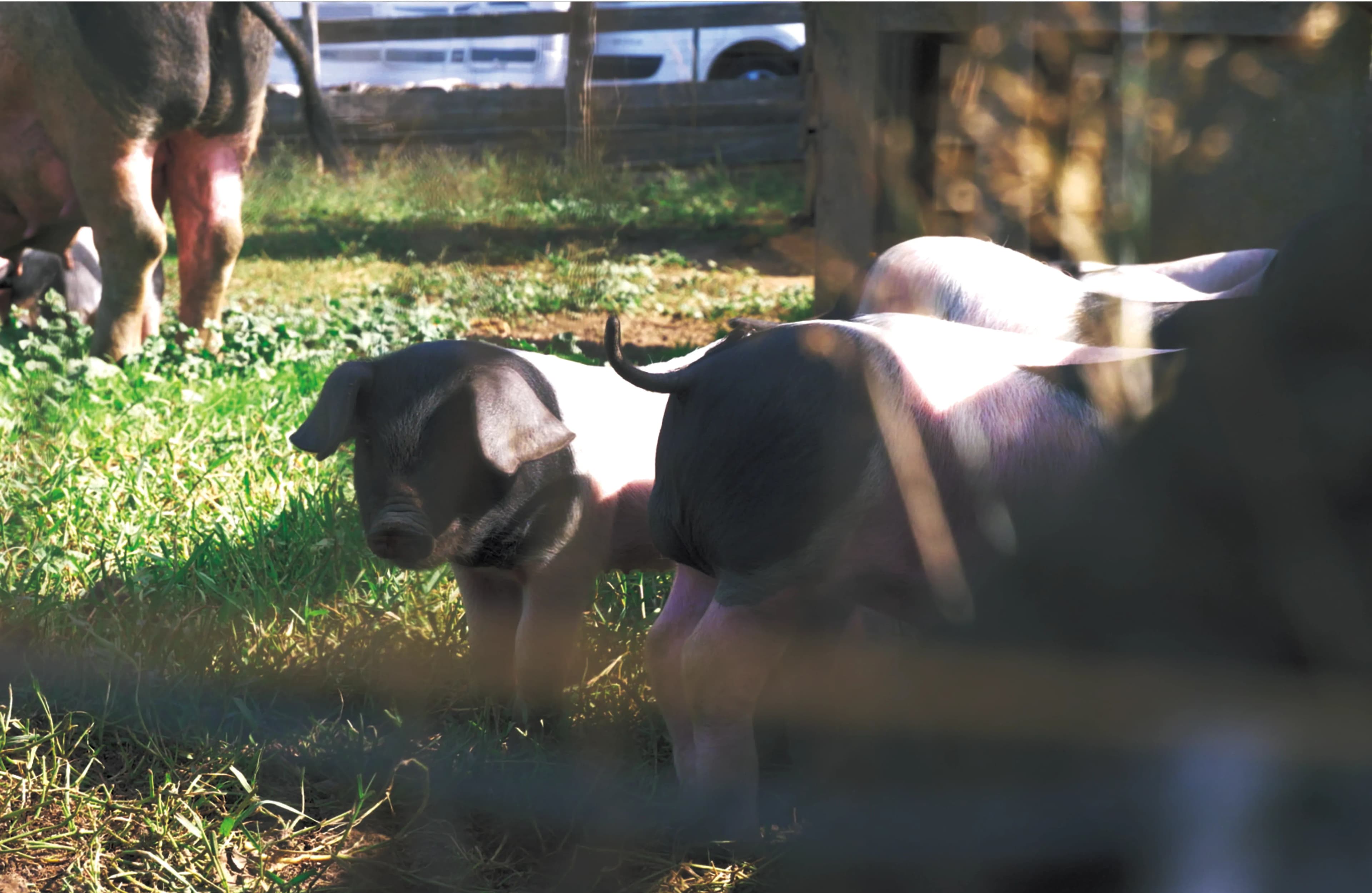
Helping clients to grow and reach their goals is what drives us to do what we do. Of course, our translation services assist our clients to reach new markets. But we also offer services beyond translation that have contributed greatly to many success stories and that have enabled our clients to export to Japan.
One such story is that of Pierre Oteiza.
Nestled in the green, rolling hills of the Aldude Valley lies a farm managed by Oteiza that has been in his family for several generations.
The family had always farmed sheep, however, things changed dramatically in 1988 following Pierre’s visit to the International Agriculture Show in Paris. It was there that he discovered the Kintoa, a breed of pig that is native to the Basque Country.

Saving a native species
At that time the Kintoa were on the brink of extinction. The breed had been declared endangered in 1981 when there were just 25 sows remaining.
Pierre Oteiza was a native of the Basque country himself, but it was only when visiting the show in Paris that he realised how important it could be to save the Kintoa.
He understood that the pigs represented an opportunity to transform his business and to revive a fascinating aspect of Basque heritage.
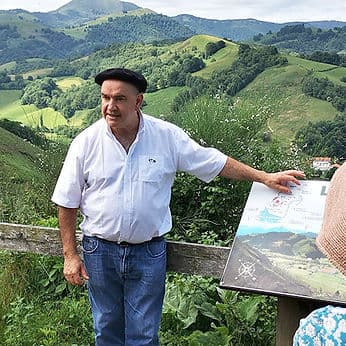
Oteiza brought the Basque pig back home. He founded the association for “Le porc Basque en Vallee des Aldudes” (Basque pigs in the Aldude Valley) along with other 10 breeders. By 1995, the Kintoa was declared “saved,” making Oteiza the widely recognized “godfather of the Basque pig.” In 2016, the breed received AOC (Appellation d’Origine Contrôlée) status.
What is the Kintoa pig?
Kintoa pigs are raised by a select group of registered breeders who practice environmentally sustainable methods. The pigs certainly enjoy enviable lifestyles.
The name Kintoa dates back to the Kingdom of Navarre (824-1512). It was the word for a ‘fifth’, which was the quantity of a pig farmer’s production that the king demanded. In return for this form of taxation, the farmers were given the right to graze their pigs on the fertile fields and mountain forests of the Aldudes Valley. The tax became known as a kintoa and the pigs were eventually endowed with the same name.
Kintoa pigs are black and pink, and they boast floppy ears. They spend much of their time foraging in the forests and grazing on the sweet grass of the plains. To be permitted to bear the name Kintoa, the pigs must benefit from a diet that features a mixture of grass, native ferns, heather and seasonal nuts from the native oak, hazel and chestnut trees. They are also fed carefully selected grains.
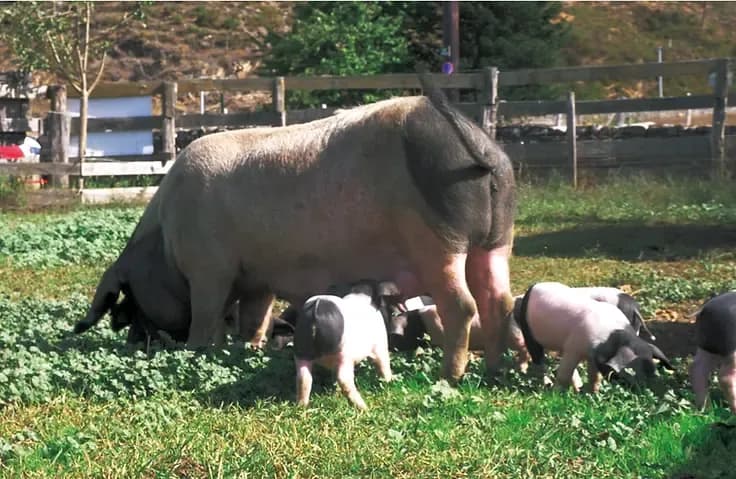
Courtesy of their excellent diet and relaxed lifestyle, the pigs are not prone to disease and so do not need to be medicated with prophylactic antibiotics as is the case with intensively farmed animals. In addition, Kintoa pigs are slaughtered when they are 18 months old. Commercially raised white pigs are slaughtered at 6 – 8 months. The fat distribution of the Kintoa pig is impressive and the meat boasts amazing flavour thanks to the special diet.
Luxurious cured ham
The Kintoa’s diet of grasses, chestnuts, acorns and select cereals imbues the meat with a rich, nuanced character. Oteiza developed his own special process for curing ham to optimize taste and texture. With the famous Bayonne ham being just an hour away, he quickly tapped into the luxury market for cured ham.
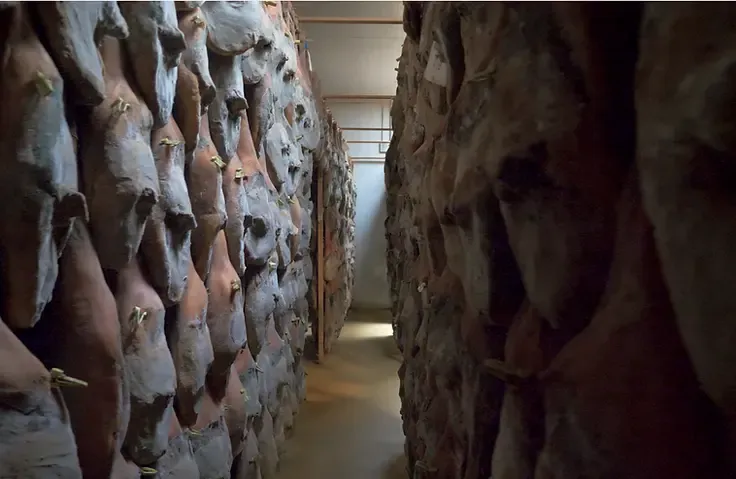
Export to Japan
Early on, Oteiza realised that there was great potential for exporting his gourmet ham to the country of Kobe beef. But, aside from licensing for exporting to Japan, the greatest difficulty was navigating the language and the cultural differences between France and Japan.
Japan’s business culture can seem incredibly formal to Westerners. Silence plays a valuable role in negotiations in Japan. Western business dealings tend to be more casual, and silence is generally a negative sign.
On one occasion, Oteiza hosted a group of potential Japanese customers. So, naturally, he hired an interpreter so they could communicate.
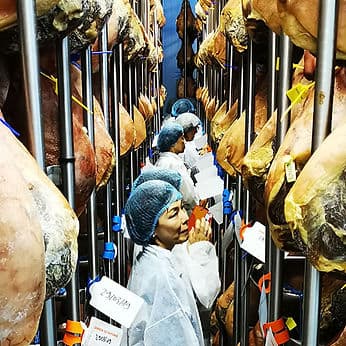
However, it quickly became clear that even a skilled interpreter could not resolve the intricacies of a business negotiation when significant cultural changes were in play. For example, the interpreter’s role was not to explain away long silences to or to provide guidance on how to properly show respect.
The road towards achieving export to Japan appeared to be a long and winding one.
Word-Connection’s contribution
As Word Connection had an existing relationship with Oteiza, he called us to find out if we could help. Because we understand how to do business in Japan as well as locally here in the Basque Country, we were able to bridge the differences between both parties. A successful partnership between the pig breeders and Japanese importers was formed.
Today, Oteiza’s success in Japan is in part due to his strong relationships with many Japanese partners. Thanks to the right help at the right time, he has built a thriving business including exports to Japan, which now account for 12% of his yearly sales.
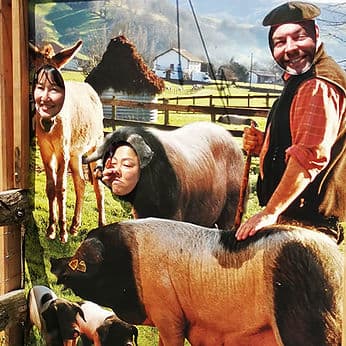
Building bridges
What Oteiza, like so many others, needed was a cultural bridge, not just an interpreter and/or document translation. Translations can only take any business so far.
Companies entering a new market need help to understand the business culture and practices of the region they wish to serve. Acting as trusted advisors and using both our linguistic skills and our cultural knowhow, we assist our clients to form successful business relationships with organisations in Japan.
Our work with Pierre Oteiza certainly illustrates how Word Connection’s services can go far beyond document translation. We enable the formation of profitable connections by finding the right words.
Categories
- Blog
- Transcreation
- Export to Japan


